HNEE Field Day – Crops and Varieties for a Changing Climate
On 12 June, the Eberswalde University for Sustainable Development (HNEE) held its annual Field Day at the Wilmersdorf Teaching and Research Station. Around 100 participants from practice, science, and advisory services attended the event, which focused on plant protection in organic farming. A wide range of crops and varieties—such as chickpeas—were also on display, showcasing options that could support future adaptation to the impacts of climate change.
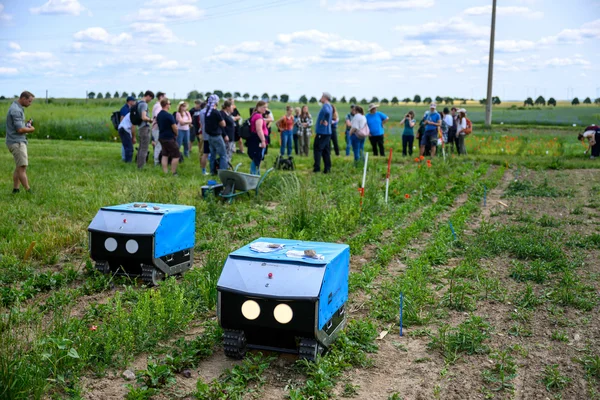
Demonstration of the field assistent in vegetable cultivation
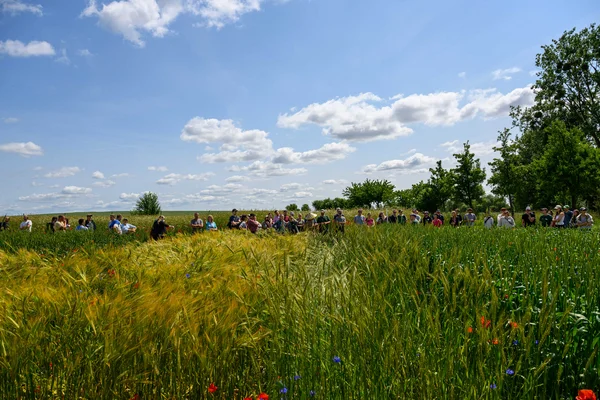
Grain variety trials observed during the Field Day field inspection.
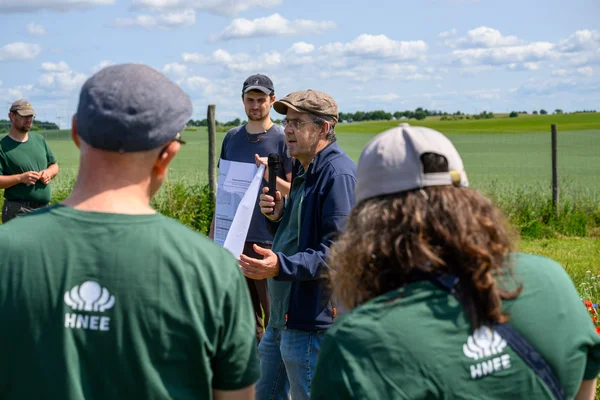
Prof. Dr Roland Hoffmann-Bahnsen explains the use of biostimulants.
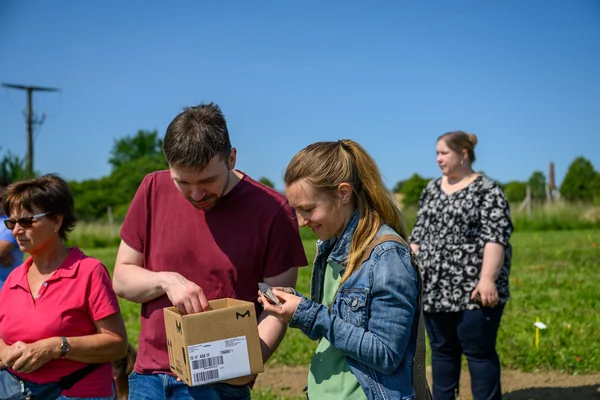
Prof. Dr Marcus Schmidt and Laura Roos examine seed samples
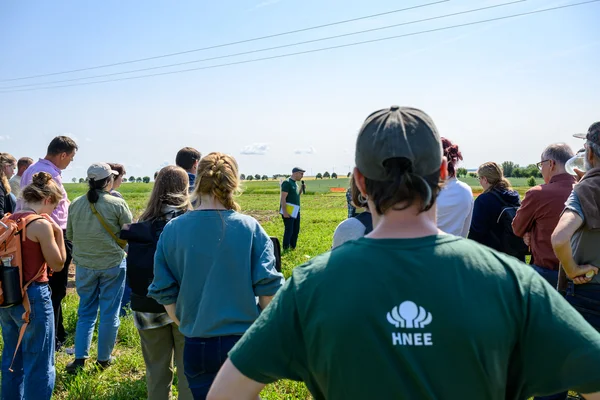
Tour of the Wilmersdorf Teaching and Research Station
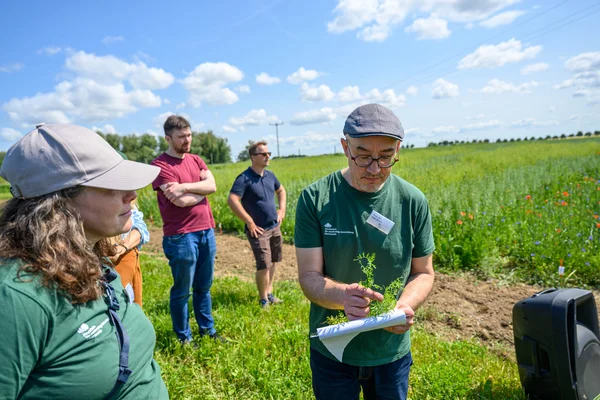
Prof. Dr Ralf Bloch, Scientific Director of the Station, examines lentils
During the tour of the experimental plots, the scientific director of the teaching and research station, Prof. Dr Ralf Bloch (Agroecology and Sustainable Cultivation Systems), and Prof. Dr Hoffmann-Bahnsen (Arable and Crop Production in Organic Farming) from HNEE, together with students and representatives of VERN e. V. (Association for the Conservation and Recultivation of Cultivated Plants), explained the experimental crops and the significance of the research findings for practical agriculture.
The tour covered trials involving mixtures of different clover varieties and grasses used as fodder legumes, the cultivation of lentils in mixed cropping systems, and the application of biostimulants (as fertilisers) in winter wheat. Variety trials were also presented for winter lupins, soya, chickpeas, winter oats, winter rye, millet, beetroot, and artichokes. Topics included variety-specific yields and crop development under changing climatic conditions in Brandenburg, as well as the influence of sowing times, crude protein development, and the yield stability of different varieties.
In a specialist lecture on “Plant Protection in Organic Arable Farming”, Prof. Dr habil. Stefan Kühne and Dr Bettina Klocke from the Julius Kühn Institute (JKI) shared current insights with participants. The programme also featured a tour of the estate’s farmland, led by the managing director of the Wilmersdorf estate, Jörg Juister, who offered practical insights into the farm’s economically viable operations.
Modern technologies to address the shortage of skilled agricultural labour were also demonstrated, with a particular focus on robotics. The AI-supported “Uckerbot”, originally developed for sugar beet cultivation, is now expanding its applications as a multi-purpose “field assistant”. It is currently being adapted for use in vegetable farming. Researchers at HNEE, led by Prof. Dr Ralf Bloch, are testing and “training” the robotic technology developed by Zauberzeug GmbH for broader agricultural use. In a parallel project headed by Prof. Dr Bloch and Prof. Dr Tobias Cremer (Forest Utilisation and Timber Markets), the use of this field assistant in agroforestry systems is also being explored.
With their practical knowledge and on-farm experience, the participants contributed valuable feedback from the field, strengthening the exchange between science and agricultural practice in Brandenburg.